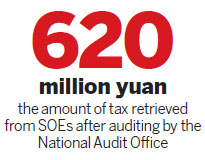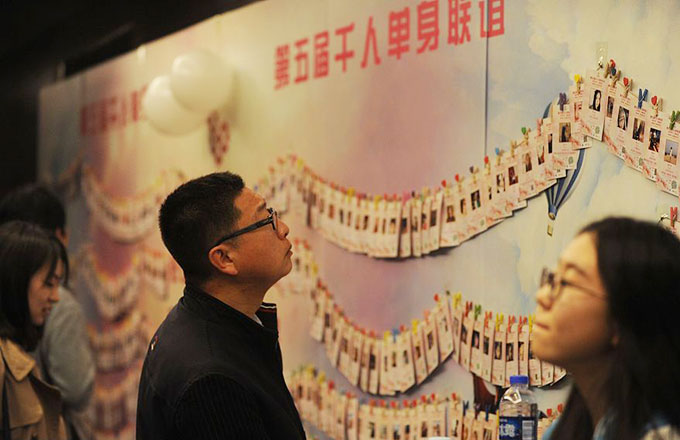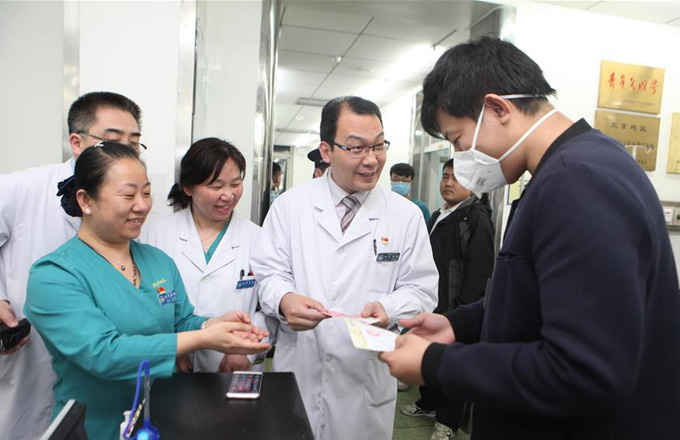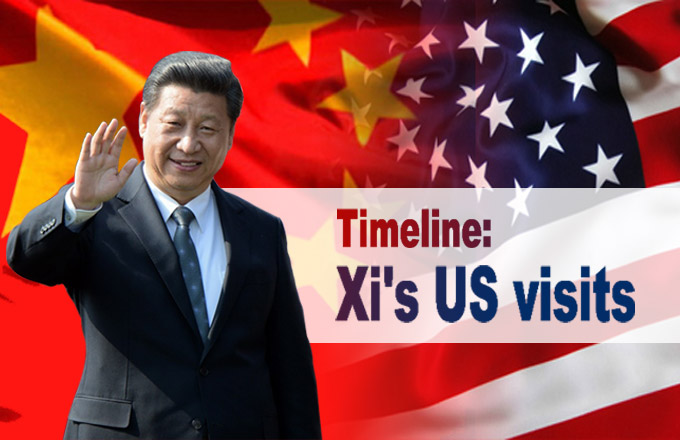Audit office criticizes China Mobile's anti-graft system
China Mobile, China's largest telecom operator, was found to have had problems in bidding and investment involving billions of yuan, according to an audit report released by the National Audit Office on Friday.
The telecom operator, already reeling from scandals in recent years in which a dozen senior executives were investigated for financial irregularities, was accused of not effectively supervising its subsidiary companies. Its anti-graft system has not been enforced and has loopholes, the office said in the report.
China Mobile's subordinate companies were found to have problems in accounting and financial management. Economic losses were incurred due to chaotic inner management, according to the report.
 |
The NAO audits the financial accounting of State-owned enterprises every year. It also issued reports on Friday for nine other SOEs, including China Minmetals Corp, power producer Huaneng Group, and China National Aviation Holding Co, and has retrieved 620 million yuan in tax.
Wei Qiang, head of the NAO's enterprise audit department, said in the report that by the end of March, those companies had stipulated or improved 785 regulations, penalized 70 people found responsible for the problems, and made supplementary tax payments of 537 million yuan.
The audit came as the national crackdown on corruption sweeps China's telecom sector, and at least five executives at China Mobile have been investigated this year for financial irregularities, according to a report in China Business News.
Five executives, including a senior executive at the company's Tianjin municipality branch, were reportedly possibly involved in trading power for money.
No official statement from the company and detailed information was released as of press time Friday night.
Founded in 2000, China Mobile is the leading mobile service provider in the Chinese mainland. With nearly 200,000 employees and 710 million customers, China Mobile has the world's largest mobile network, but also has been nagged by corruption scandals.
In 2010, Zhang Chunjiang, former deputy general manager of China Mobile, was removed from his post for taking bribes.
Twelve senior executives of China Mobile have been removed from their posts for financial irregularities since 2009, according to China Business News.
"Auditing plays an important and indispensable role in anti-corruption," said Jiang Mingan, a law professor at Peking University and an anti-corruption expert. "It digs out the embezzlement of public properties in those big companies and supervises their financial activities."
Besides auditing, however, China also needs a complete mechanism to fight and prevent corruption, according to the professor.
"Auditing is an effort to discover existing problems in companies and potential risks to maintain and increase the value of State assets. But for individual officials, we need a supervision system to prevent them from taking bribes," he said.
Jiang suggested officials must report assets and incomes to the government to trace officials' financial activities. If there was an unusual income or expense, the information should be reported to supervisors.
"The recent investigation of China Mobile executives could be considered as a part of the graft crackdown and it shows the government's determination to fight corruption," said Jiang, referring to the anti-graft instruction made by President Xi Jinping during the 18th National Congress of the Communist Party of China in November.



















